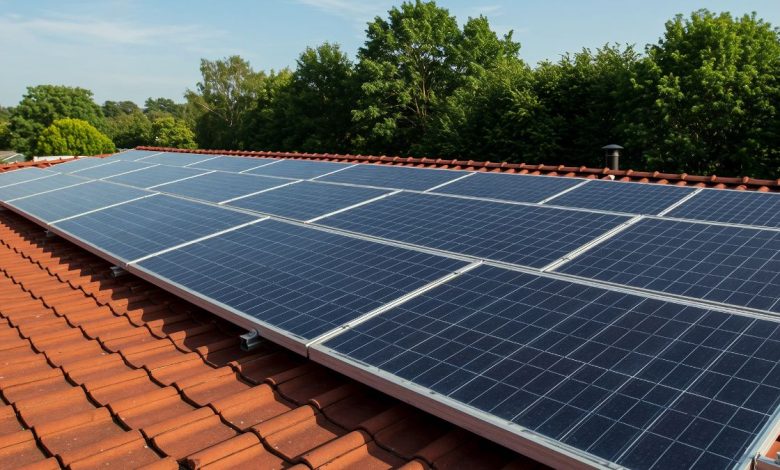Urgent Update for South Africans with Solar Panels: What You Need to Know

If you’re a South African with solar panels installed on your property, there are urgent updates you need to be aware of. The rules surrounding solar systems in South Africa have changed significantly, particularly in Gauteng. These changes could affect the way you use and maintain your system, as well as your registration requirements. In this article, we’ll walk you through everything you need to know to stay compliant and avoid costly fines.
Registration Requirements for South Africans with Solar Panels
One of the most pressing updates is the mandatory registration of all solar photovoltaic (PV) systems. As of December 2024, Eskom introduced a new requirement requiring every residential and business solar system to register with the utility by March 2026. This move is to ensure grid stability and proper integration of renewable energy sources into the national grid.
Learn more about the costs of refusing a City Power meter audit in our article.
For South Africans with solar panels, this means you must submit your system details to Eskom or your local municipality. Failing to do so could result in significant penalties. These registration requirements cover both grid-tied and off-grid systems, so make sure to check with your energy provider about how to comply.
Why the Change Is Happening
The need for registration stems from the increasing number of South Africans with solar panels who are contributing to the energy grid. Solar power has become a crucial part of the country’s fight against frequent power outages and rising energy costs. However, as the number of independent power producers grows, Eskom needs a clear picture of how much electricity they generate and consume.
By registering solar systems, Eskom aims to monitor and manage energy production more effectively, ensuring that the grid remains stable as more homes and businesses switch to solar energy.
Financial Incentives for Solar Panel Owners
In a bid to encourage the adoption of solar power, the South African government has introduced several financial incentives. These include:
- Tax Rebates: Homeowners can claim up to 25% of the cost of solar panel installations as a tax rebate, with a maximum value of R15,000.
- Grants for Installation: In August 2025, the government introduced an R8,000 grant for solar installations, aiming to make it more affordable for homeowners to go solar.
These incentives are part of a broader effort to reduce reliance on Eskom’s power grid and promote sustainable energy use across the country.
The Role of Eskom in Solar System Compliance
Eskom plays a crucial role in the registration process. They are responsible for approving the installation of solar systems and ensuring compliance with the relevant standards. However, Eskom’s new registration requirements have faced criticism from various organisations, including OUTA (Organisation Undoing Tax Abuse), which argues that the requirements are overly restrictive and costly.
Despite this, Eskom maintains that the registration process is essential to ensure the safety and efficiency of connecting solar systems to the grid.
OUTA’s Concerns About Eskom’s Solar System Registration
OUTA has raised significant concerns regarding Eskom’s registration process. They argue that the requirement for a registered engineer to sign off on every solar system is unnecessary and overly expensive. According to OUTA, the regular Certificate of Compliance (CoC) from a registered electrical contractor should suffice.
They further claim that Eskom’s demands may be overstepping its regulatory authority, as some of the compliance requirements are already covered under existing laws, such as the SABS Code of Practice.
Find out everything you need to know about Eskom’s rooftop solar system registration requirements here.
The Cost of Non-Compliance: What South Africans with Solar Panels Need to Know
If you fail to register your solar system by March 2026, you may face penalties. These fines can range from R6,000 to R50,000, depending on the severity of the non-compliance. Additionally, the costs of registering your system could add anywhere from R20,000 to R50,000 to your installation costs.
Therefore, it’s important for South Africans with solar panels to act quickly and ensure that their systems are registered before the deadline.
What Should Homeowners Do Now?
Here’s what you should do to stay compliant:
- Register your system: Reach out to Eskom or your local municipality for guidance on how to submit your registration details.
- Understand your rights: Familiarise yourself with the regulations and the financial incentives available to you.
- Seek professional advice: If you’re unsure about the registration process or need help navigating the requirements, consult with an accredited solar installer.
What Are the Benefits of Solar Panel Registration?
Although the registration process might seem like a hassle, there are significant benefits. Firstly, registering your solar system will help ensure that it’s safely integrated into the national grid. This will help prevent power disruptions and ensure your system operates at its full potential.
Additionally, registration allows you to qualify for various financial incentives, including tax rebates and installation grants, which can significantly reduce your overall costs.
Expert Opinions on the Future of Solar in South Africa
Experts predict that solar energy will continue to grow rapidly in South Africa, particularly as electricity tariffs rise and Eskom struggles with power supply issues. According to the South African Photovoltaic Industry Association (SAPVIA), the country’s installed solar capacity is projected to increase from 6.68 GW in 2024 to 11.03 GW by 2029. This growth will likely lead to more homeowners and businesses opting for solar power as a reliable and cost-effective alternative.
Stay Ahead of the Curve
For South Africans with solar panels, staying informed about regulatory changes is essential. The new registration requirements might be daunting, but they are crucial for grid stability and ensuring your system’s compliance with national standards. By taking action now, you can avoid fines and make the most of available financial incentives.



